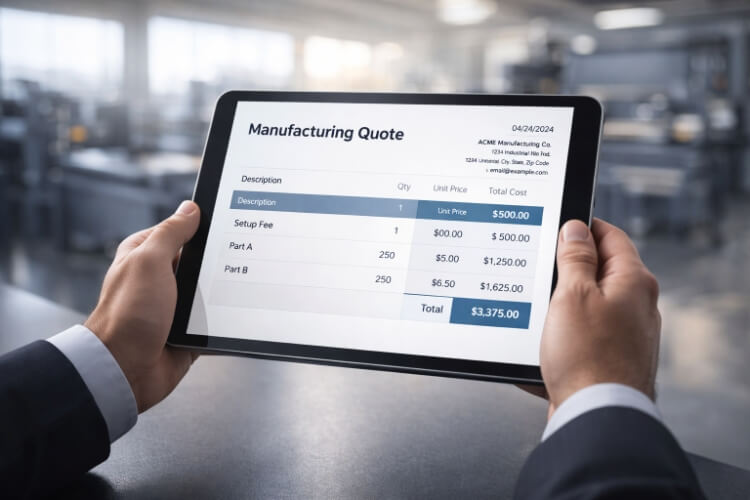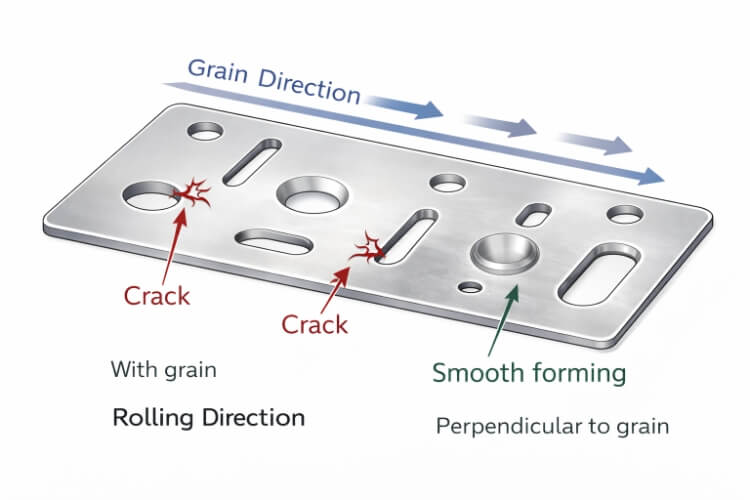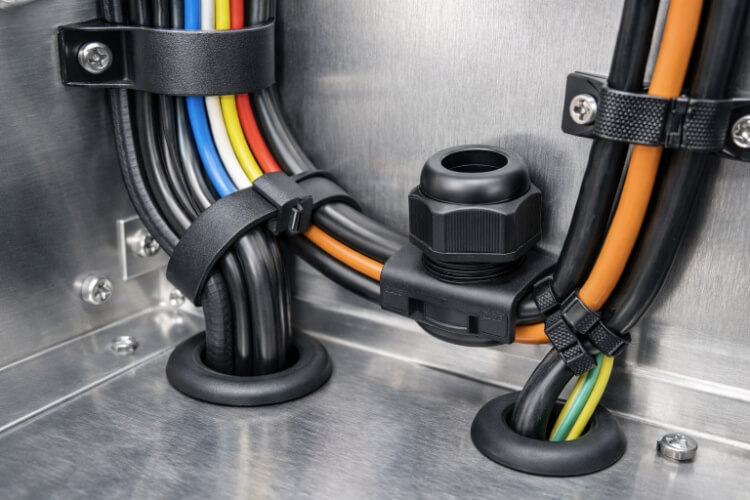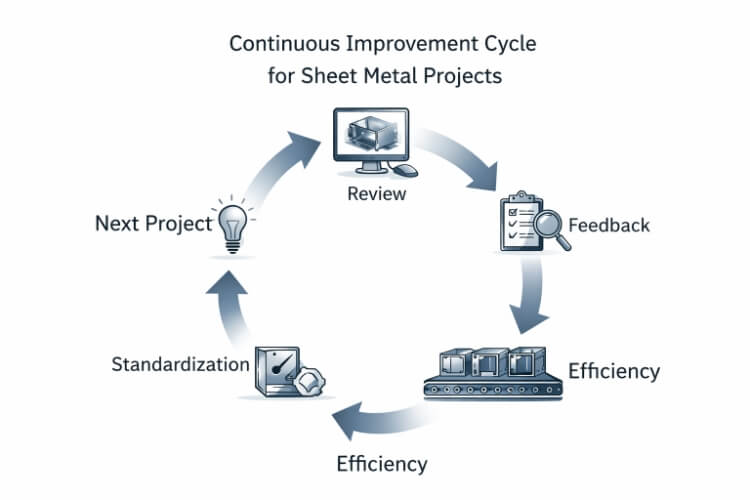Viele Hersteller haben mit steigenden Kosten und Problemen bei der Qualitätskontrolle ihrer bearbeiteten Komponenten zu kämpfen. Präzisionsgefertigte Teile lösen diese Probleme, indem sie enge Toleranzen, gleichbleibende Qualität und zuverlässige Leistung in allen Branchen von der Luft- und Raumfahrt bis hin zu medizinischen Geräten bieten.
Bei präzisionsbearbeiteten Teilen handelt es sich um Komponenten, die mit extremer Genauigkeit hergestellt werden, oft mit Toleranzen von nur wenigen Mikrometern. Diese Teile erfüllen durch CNC-Bearbeitung, Drehen, Fräsen und Schleifen genaue Spezifikationen. Die moderne Fertigung ist auf diese Komponenten angewiesen, von Fahrzeugmotoren bis hin zu chirurgischen Instrumenten.
Die Welt der Präzisionsbearbeitung verbindet modernste Technologie mit bewährten Konstruktionsprinzipien. Sehen wir uns an, was diese Teile in der heutigen Fertigungslandschaft so wertvoll macht.
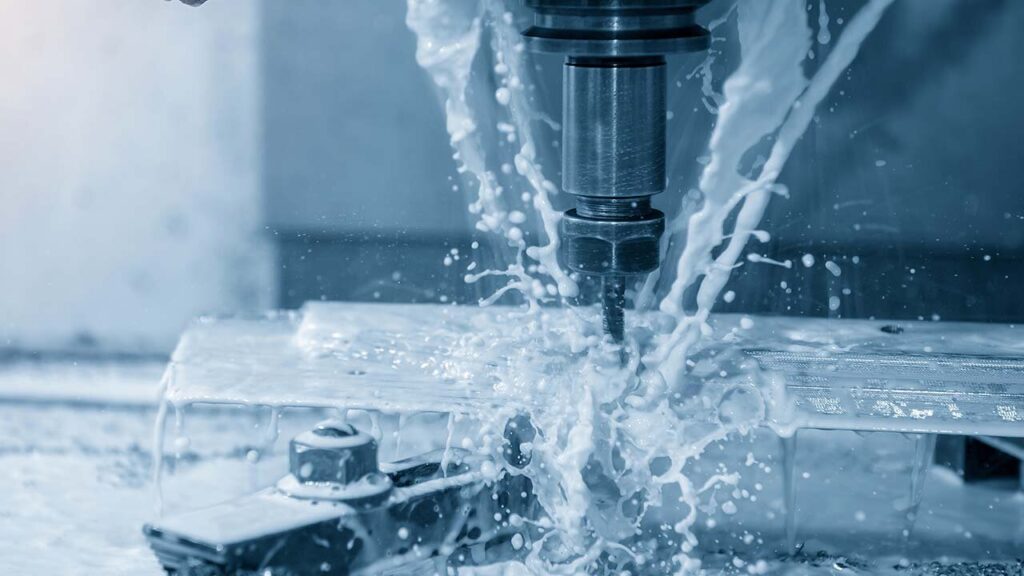
Was sind präzisionsbearbeitete Teile?
Präzisionsbearbeitete Teile sind Komponenten, die mit außergewöhnlicher Genauigkeit und engen Toleranzen gefertigt werden. Diese Teile werden mit fortschrittlichen Bearbeitungstechniken hergestellt, die sicherstellen, dass jedes Teil perfekt in seine vorgesehene Funktion passt. Bei diesem Verfahren wird Material von einem Werkstück abgetragen, um die gewünschte Form, Größe und Oberfläche zu erhalten.
Hersteller sind auf eine präzise Bearbeitung angewiesen, um Teile mit minimalen Fehlern herzustellen. Enge Toleranzen sind der Schlüssel zur Erhaltung der Integrität des Endprodukts. Der Wert von präzisionsbearbeiteten Teilen liegt in ihrer Fähigkeit, die Gesamteffizienz der Fertigung und die Produktqualität zu verbessern.
Die wichtigsten Arten von Präzisionsbearbeitungsprozessen
Bei der Präzisionsbearbeitung werden hochpräzise Werkzeuge und Maschinen eingesetzt, um Teile mit genauen Abmessungen und Oberflächengüten herzustellen. Dieses Verfahren ist unerlässlich für die Herstellung von Bauteilen, die engen Toleranzen und komplexen Konstruktionsspezifikationen entsprechen.
CNC-Bearbeitung
CNC-Bearbeitung ist die am weitesten verbreitete Methode. Dabei werden computergesteuerte Maschinen zum Schneiden, Formen und Bearbeiten von Materialien eingesetzt. CNC-Maschinen folgen präzisen Anweisungen von CAD-Entwürfen und gewährleisten hohe Genauigkeit und Wiederholbarkeit. Sie sind vielseitig und können komplexe Formen und enge Toleranzen verarbeiten.
EDM (Elektroerosion)
Funkenerosion nutzt elektrische Funken, um harte Materialien wie Titan oder gehärteten Stahl zu formen. Es ist ideal für die Herstellung komplizierter Details oder die Bearbeitung von Materialien, die sich mit herkömmlichen Methoden nur schwer schneiden lassen. Das Verfahren ist berührungslos und vermeidet so den Verschleiß von Werkzeugen.
Schleifen und Polieren
Schleifen verwendet Schleifscheiben, um kleine Mengen von Material zu entfernen und eine glatte Oberfläche zu erzielen. Es wird häufig verwendet, um Teile fertigzustellen und enge Toleranzen einzuhalten. Durch Polieren wird die Oberfläche weiter verfeinert, sodass sie weich und glänzend wird.
Drehen und Fräsen
Beim Drehen wird ein Werkstück gedreht, während ein Schneidwerkzeug es formt. Es wird üblicherweise für zylindrische Teile wie Wellen oder Bolzen verwendet. Beim Fräsen hingegen werden rotierende Schneidwerkzeuge verwendet, um Material von einem feststehenden Werkstück zu entfernen. Es ist ideal für die Herstellung von flachen Oberflächen, Schlitzen oder komplexen Geometrien.
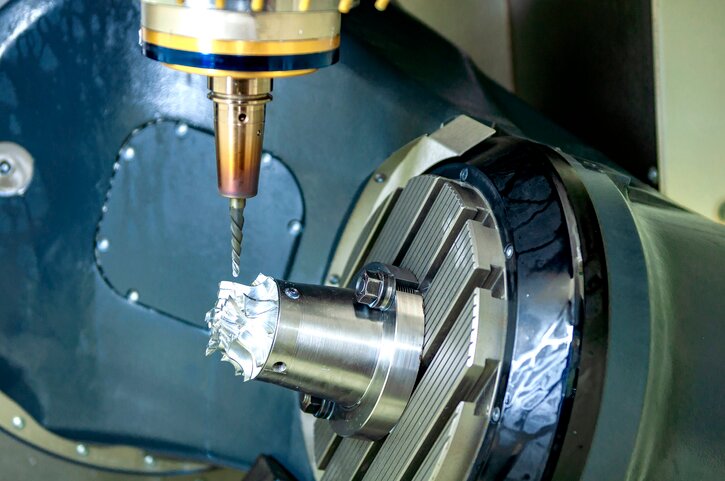
Vorteile der Verwendung von präzisionsbearbeiteten Teilen
Präzisionsgefertigte Teile bieten eine Reihe bedeutender Vorteile für die Fertigung. Diese Vorteile helfen der Industrie, hohe Standards und zuverlässige Ergebnisse bei ihren Produkten zu erzielen.
Hohe Genauigkeit und Konsistenz
Die Präzisionsbearbeitung stellt sicher, dass die Teile mit sehr hoher Genauigkeit hergestellt werden. Jede Komponente wird nach exakten Maßen gefertigt, unabhängig davon, ob es sich um ein einzelnes Teil oder eine große Serie handelt. Diese Konsistenz trägt zur Verringerung von Fehlern und Mängeln bei, was zu einer besseren Gesamtqualität führt.
Kostengünstig
Auch wenn die anfängliche Einrichtung für die Präzisionsbearbeitung teuer erscheinen mag, kann sie im Laufe der Zeit Geld sparen. Die hohe Genauigkeit dieser Teile bedeutet weniger Fehler, weniger Materialabfall und weniger Teile, die nachgearbeitet werden müssen.
Verbesserte Produktqualität
Die Präzisionsbearbeitung verbessert die Qualität des Endprodukts. Die auf diese Weise hergestellten Teile weisen enge Toleranzen und glatte Oberflächen auf, wodurch sie die erwartete Leistung erbringen.
Verbesserte Leistung
Präzisionsgefertigte Teile verbessern direkt die Leistung des Endprodukts. Dank präziser Messungen passen diese Teile perfekt und sorgen dafür, dass alles so zusammenpasst, wie es soll.
Personalisierung
Die Präzisionsbearbeitung ermöglicht hochgradig individualisierte Teile, die auf spezifische Bedürfnisse zugeschnitten sind. Ganz gleich, ob es sich um eine einzigartige Form, Größe oder ein besonderes Material handelt, die Präzisionsbearbeitung kann dies leisten.
Gängige Metalle in der Präzisionszerspanung
Bei der Präzisionsbearbeitung werden verschiedene Metalle verwendet, die jeweils einzigartige Vorteile für unterschiedliche Anwendungen bieten. Die Auswahl des richtigen Werkstoffs gewährleistet, dass das Teil gut funktioniert und die spezifischen Industrienormen erfüllt.
Stahllegierungen
Stahllegierungen, wie z. B. Edelstahl und Kohlenstoffstahl, werden aufgrund ihrer Festigkeit, Haltbarkeit und Vielseitigkeit häufig für die Präzisionsbearbeitung verwendet.
Aluminium
Aluminium ist leicht, korrosionsbeständig und einfach zu bearbeiten, was es zu einer beliebten Wahl für viele Branchen macht. Aluminium bietet auch eine gute thermische und elektrische Leitfähigkeit und wird häufig in der Elektronik und in Wärmeaustauschsystemen verwendet.
Titan
Titan ist bekannt für sein hervorragendes Verhältnis von Festigkeit zu Gewicht und seine Korrosionsbeständigkeit. Obwohl es schwierig zu bearbeiten ist, ist es aufgrund seiner einzigartigen Eigenschaften ideal für Hochleistungsanwendungen.
Messing und Kupfer
Messing und Kupfer werden in der Präzisionsbearbeitung wegen ihrer hervorragenden elektrischen und thermischen Leitfähigkeit geschätzt. Messing ist weicher und leichter zu bearbeiten und eignet sich daher für die Feinbearbeitung von Teilen.
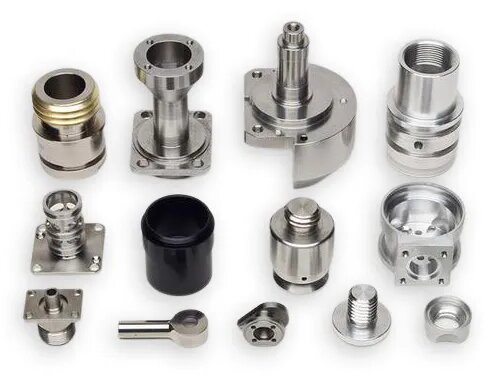
Der Präzisionsbearbeitungsprozess
Die Präzisionsbearbeitung ist ein detailliertes Verfahren zur Umwandlung von Rohstoffen in hochwertige Teile. Die einzelnen Schritte sollen sicherstellen, dass das Endprodukt den genauen Spezifikationen entspricht.
Schneiden und Gestalten
Schneiden und Formen sind die ersten Schritte bei der Präzisionsbearbeitung. Das Material wird mit Werkzeugen wie CNC-Maschinen oder Drehbänken in eine grobe Form geschnitten. Dadurch wird das Teil auf die ungefähre Größe gebracht, bevor eine Feinabstimmung vorgenommen wird.
Bohren und Aufbohren
Bohren und Aufbohren Erzeugen von Löchern oder inneren Merkmalen in einem Teil. Beim Bohren werden runde Löcher hergestellt, während beim Ausbohren die Größe und die Glätte vorhandener Löcher verbessert werden.
Oberflächenveredelung
Die Oberflächenbearbeitung ist der letzte Schritt im Bearbeitungsprozess. Dabei wird die Oberfläche des Werkstücks geglättet und poliert, um sein Aussehen und seine Haltbarkeit zu verbessern.
Faktoren, die die Präzision bei der maschinellen Bearbeitung beeinflussen
Mehrere Faktoren können die Präzision des Bearbeitungsprozesses beeinträchtigen, was sich wiederum auf die Qualität und Genauigkeit des Endprodukts auswirkt.
Toleranzen und Maßgenauigkeit
Toleranzen sind die zulässigen Abweichungen von der Größe eines Teils. Enge Toleranzen sind wichtig, um sicherzustellen, dass die Teile richtig zusammenpassen. Das Teil funktioniert möglicherweise nicht wie vorgesehen, wenn die Abmessungen auch nur geringfügig abweichen. Maßgenauigkeit ist der Schlüssel, um sicherzustellen, dass das Teil die Konstruktionsanforderungen erfüllt.
Leistung und Kalibrierung von Werkzeugmaschinen
Die Leistung der Werkzeugmaschine ist entscheidend für die Präzision. Eine gut gewartete und kalibrierte Maschine stellt Teile mit hoher Genauigkeit her. Regelmäßige Kontrollen und Wartung sind erforderlich, damit die Maschinen reibungslos funktionieren. Wenn eine Maschine nicht richtig kalibriert ist, kann sie ungenaue Teile herstellen.
Die Rolle von Schneidwerkzeugen und Werkzeugverschleiß
Schneidwerkzeuge sind für eine präzise Bearbeitung von entscheidender Bedeutung. Die Qualität des Werkzeugs wirkt sich darauf aus, wie sauber es durch das Material schneidet. Mit der Zeit können Werkzeuge stumpf werden oder sich abnutzen, was zu weniger genauen Schnitten führt.
Materialeigenschaften und ihr Einfluss auf die Zerspanung
Das zu bearbeitende Material kann die Präzision beeinflussen. Verschiedene Materialien haben unterschiedliche Härten und Eigenschaften, die sich darauf auswirken, wie leicht sie sich schneiden oder formen lassen. Weichere Materialien lassen sich unter Umständen leichter bearbeiten, während steifere Materialien die Werkzeuge schneller verschleißen können.
Anwendungen von präzisionsbearbeiteten Teilen
Präzisionsgefertigte Teile werden in vielen Branchen eingesetzt. Sie sorgen dafür, dass Produkte zuverlässig und sicher funktionieren. Sehen wir uns an, wie sie in verschiedenen Bereichen eingesetzt werden.
Luft-und Raumfahrtindustrie
Präzisionsbearbeitete Teile sind für die Sicherheit und Leistung in der Luft- und Raumfahrtindustrie unerlässlich. Komponenten wie Triebwerksteile, Fahrwerke und Steuerungssysteme müssen sehr enge Toleranzen einhalten, und die Präzisionsbearbeitung stellt sicher, dass diese Teile den harten Bedingungen im Flug gewachsen sind.
Medizinische Geräte und Implantate
Medizinische Geräte und Implantate sind auf Präzisionsbearbeitung angewiesen, um korrekt zu funktionieren. Teile wie chirurgische Werkzeuge, Gelenkersatz und zahnmedizinische Geräte müssen nach genauen Maßen gefertigt werden. So wird sichergestellt, dass sie richtig passen, sicher funktionieren und den Patienten nicht schaden.
Automobilherstellung
Die Automobilindustrie verwendet präzisionsbearbeitete Teile für viele Fahrzeugkomponenten, darunter Motorteile, Bremsen und Federungssysteme. Die Präzisionsbearbeitung stellt sicher, dass diese Teile langlebig sind und einwandfrei funktionieren, um die hohen Anforderungen an die Sicherheit und Leistung von Fahrzeugen zu erfüllen.
Elektronik- und Halbleiterindustrie
In der Elektronik- und Halbleiterindustrie werden präzisionsgefertigte Teile zur Herstellung von Steckern, Gehäusen und Kühlkörpern verwendet. Diese Teile müssen strenge Spezifikationen erfüllen, damit die Geräte ordnungsgemäß funktionieren, und die Präzisionsbearbeitung ist der Schlüssel dazu, dass alles passt und funktioniert, wie es soll.
Industrielle Maschinen und Anlagen
Präzisionsgefertigte Teile sind auch in Industriemaschinen üblich. Zahnräder, Wellen und Lager müssen mit hoher Genauigkeit gefertigt werden. Die Präzisionsbearbeitung trägt dazu bei, dass Anlagen in Branchen wie der Fertigungsindustrie und der Energiewirtschaft reibungslos und effizient laufen.
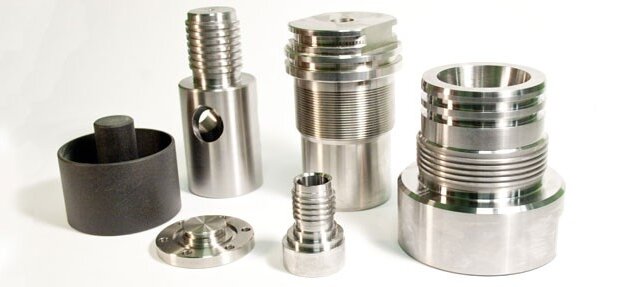
Schlussfolgerung
Präzisionsbearbeitung ist der Schlüssel zur Herstellung von Teilen mit hoher Genauigkeit und Konsistenz. Sie wird in vielen Branchen eingesetzt, z. B. in der Luft- und Raumfahrt, der Medizintechnik, der Automobilindustrie, der Elektronik und im Maschinenbau. Diese Teile sorgen dafür, dass die Produkte sicher und zuverlässig sind und eine gute Leistung erbringen. Jeder Schritt im Bearbeitungsprozess wird sorgfältig geplant, um strenge Normen zu erfüllen.
Kontaktieren Sie uns wenn Sie für Ihr nächstes Projekt präzisionsgefertigte Teile benötigen. Wir helfen Ihnen gerne, die richtige Lösung für Ihre Bedürfnisse zu finden!
Hey, ich bin Kevin Lee

In den letzten 10 Jahren bin ich in verschiedene Formen der Blechbearbeitung eingetaucht und teile hier coole Erkenntnisse aus meinen Erfahrungen in verschiedenen Werkstätten.
Kontakt aufnehmen

Kevin Lee
Ich verfüge über mehr als zehn Jahre Berufserfahrung in der Blechverarbeitung und bin auf Laserschneiden, Biegen, Schweißen und Oberflächenbehandlungstechniken spezialisiert. Als Technischer Direktor bei Shengen bin ich bestrebt, komplexe Fertigungsherausforderungen zu lösen und Innovation und Qualität in jedem Projekt voranzutreiben.

